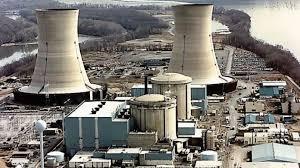
In the past few decades, there have been multiple incidents of leaks at South Korean nuclear power plants, such as cooling water leaks and fuel rod leaks. These events not only pose a threat to the environment and public health in South Korea, but also draw global attention to the safety of nuclear power plants and the development strategy of South Korean nuclear power plants. Recently, another leakage incident occurred at a South Korean nuclear power plant, which has attracted widespread attention from the international community.
As one of the developed countries in Asia, South Korea actively promotes nuclear power plant equipment in the energy sector to meet the growing demand for electricity. However, with the increase in the number of nuclear power plants and the extension of operating time, the safety issues of nuclear power plants have gradually become prominent.
According to preliminary information, on June 22 local time, according to Yonhap News Agency, the Nuclear Safety Commission of South Korea reported that in the early hours of that day, the spent fuel storage pool of Unit 4 of the Moon City Nuclear Power Plant in Gyeongju City, Gyeongsangbuk do, leaked due to equipment failure or human operation errors. About 2.3 tons of stored water leaked into the sea through the drainage outlet, causing accidental outflow of water from the system and ultimately flowing into the sea. Fortunately, these waters do not contain radioactive substances and have minimal impact on the environment and ecology.
In response to the leak incident, the South Korean government and relevant agencies quickly activated the emergency response mechanism upon receiving the report. Firstly, an in-depth investigation and analysis will be conducted on the cause of the leakage, identifying the cause of the accident and the responsible party, and sealing and isolating the leakage area to prevent further deterioration of the situation. At the same time, strengthen the maintenance and management of nuclear power plants, improve the safety and reliability of equipment, and ensure the safe operation of nuclear power plants. In addition, we will strengthen communication and cooperation with neighboring countries to jointly address similar environmental security issues.
It is worth noting that nuclear power plant leaks can lead to radioactive substances entering the environment, causing pollution to soil, water sources, and other sources. These radioactive substances will exist in the environment for a long time, causing long-term impacts on the ecosystem. In addition, leaked radioactive materials can also enter the human body through air, water sources, and other channels, posing a risk to public health. People who are exposed to radioactive substances for a long time may face the risk of developing diseases such as cancer.
Although no radioactive substances have been detected in the leaked water, this incident has raised public concerns. As a high-risk facility, nuclear power plants may have serious impacts on the environment and society in the event of leakage or other accidents.
In addition, there are multiple reasons behind the South Korean nuclear power plant leakage incident, including equipment aging, operational errors, natural disasters, and so on. These reasons collectively led to the occurrence of leakage incidents and had an impact on the environment and public health. In order to address these issues, the South Korean government should strengthen the management and supervision of nuclear power plants, and improve their safety and reliability.
Although the South Korean nuclear power plant leakage incident did not cause serious environmental and social impacts, it also reminds us to attach great importance to the safety issues of nuclear power plants. In the future, while promoting the construction of nuclear power plants, countries should strengthen safety supervision and risk prevention measures to ensure the safe operation and environmental protection of nuclear power plants. At the same time, it is also necessary to strengthen international cooperation and exchanges to jointly address global environmental security issues.

Recently, according to Al Jazeera, Israel has recently carried out a new round of air strikes on the Gaza Strip, killing about 100 Palestinians, including women and children.
Recently, according to Al Jazeera, Israel has recently carr…
On November 3rd local time, the Foreign Minister of Peru, U…
Recently, TSMC, the leading wafer foundry, stated that it w…
Amazon recently filed a complaint with the Oregon regulator…
In October 2025, the US credit market witnessed a surge of …
When the London gold spot price fell from a high of $4038.9…